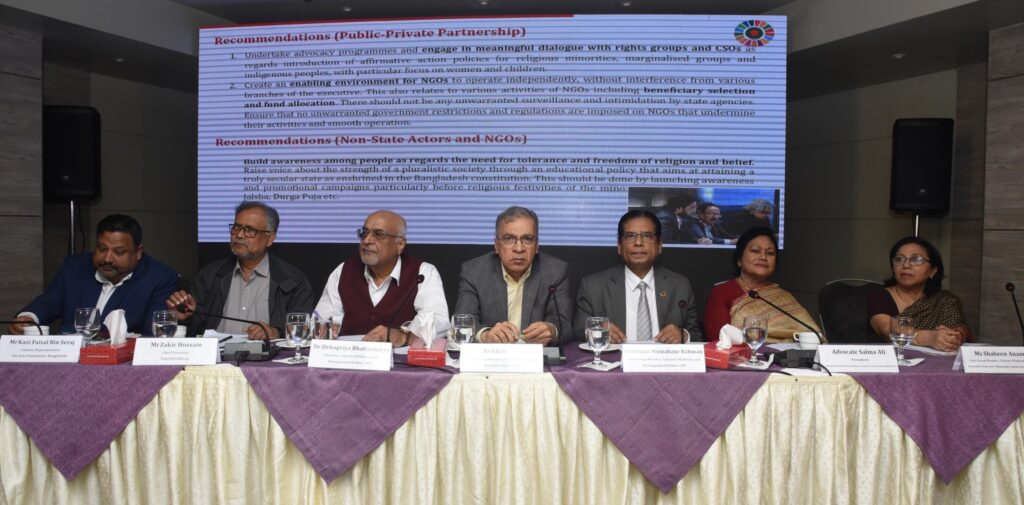
In the current democratic scenario, citizens have to play an active role, which is more crucial than ever. If the traditional democratic system weakens ahead, social forces must step up. Remaining silent and relying on distant solutions is not an option; every citizen, particularly the youth, must actively contribute to the country’s progress.
Elections will happen, the country will continue, and so will its citizens. The responsibility of the civil society, and media to them must persist.
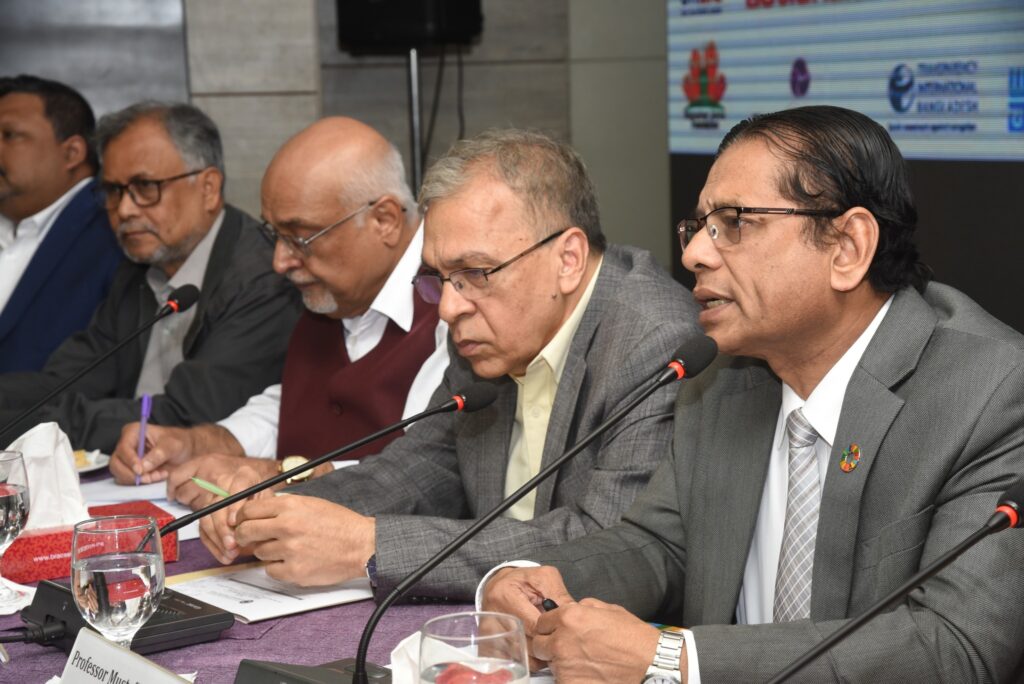 These observations emerged from the discussions at the media briefing titled “Citizen’s Agenda for Inclusive Development and Equity: Gender-based violence, Discrimination against ethnic and religious minorities and Giving voice to the ‘silent’. The media briefing held on Saturday, December 30, 2023, at the BRAC Centre Inn Auditorium, Mohakhali, Dhaka.
These observations emerged from the discussions at the media briefing titled “Citizen’s Agenda for Inclusive Development and Equity: Gender-based violence, Discrimination against ethnic and religious minorities and Giving voice to the ‘silent’. The media briefing held on Saturday, December 30, 2023, at the BRAC Centre Inn Auditorium, Mohakhali, Dhaka.
The media briefing was organised by the Citizen’s Platform in association with UKAid Bangladesh, ActionAid Bangladesh, Centre for Policy Dialogue (CPD), Concern Worldwide, Manusher Jonno Foundation, The Asia Foundation, Transparency International Bangladesh (TIB) and WaterAid Bangladesh.
Professor Mustafizur Rahman, Distinguished Fellow, CPD and core group member, Citizen’s Platform, moderated the session. He briefly shared the process of developing the 11 Policy Briefs. He stated that Citizen’s Platform, through country-wide interactions with spokespersons of key stakeholder groups, selected the 11 issues that require policy attention. Around 130 issue experts collaborated under 11 teams to prepare these 11 briefs that offer issue-specific actionable recommendations underpinned by the specific context and contestations concerning the articulated theme. In each of these cases, the concerns and interests of the vulnerable groups have informed the suggestions for reforms and policy uptakes.
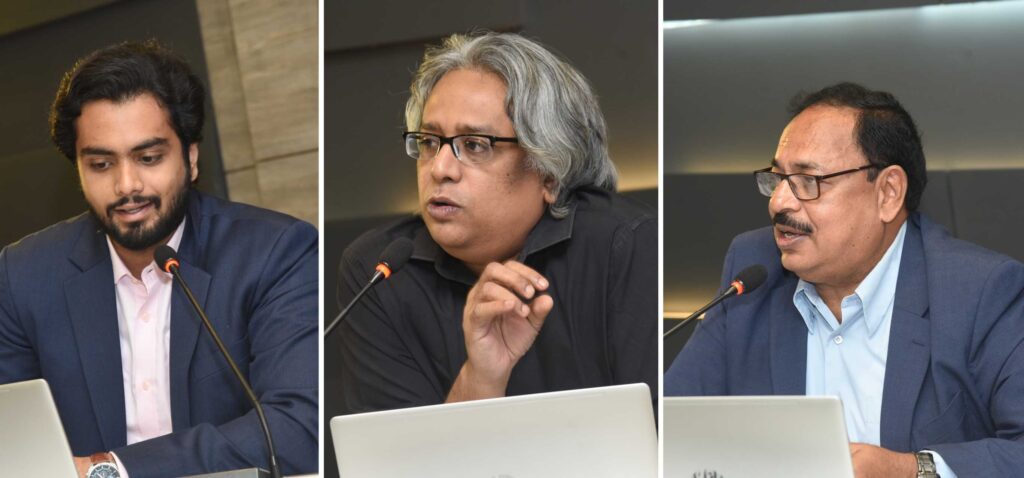
Mr M B Akhter, Development Professional and Gender Analyst in his presentation on gender-based violence highlighted reduced gender inequality but emphasised persistent challenges for marginalized communities, leading to an undesirable gap. He proposed comprehensive measures, including redefining ‘Rape’ and implementing expedited trial procedures.
Mr Farhan Hossain, Research Associate, Nagorik Uddyog proposed an enhanced approach toward ethnic and minority concerns, advocating for the more effective implementation of current policies and the creation of new ones. His recommendations included inclusion of the Dalit community into the census, thorough review of textbooks in the national curriculum and Madrasah boards and protection of land rights of ethnic minorities.
Dr Asif Mohammad Shahan, Associate Professor, Department of the Development Studies, University of Dhaka emphasised three words in this presentation on giving voice to the silent; institutional liability, legal protection and accountability. He urged for precise definitions of discrimination, victims eligible for redress under the Act and ensuring adequate representation in the electoral process.
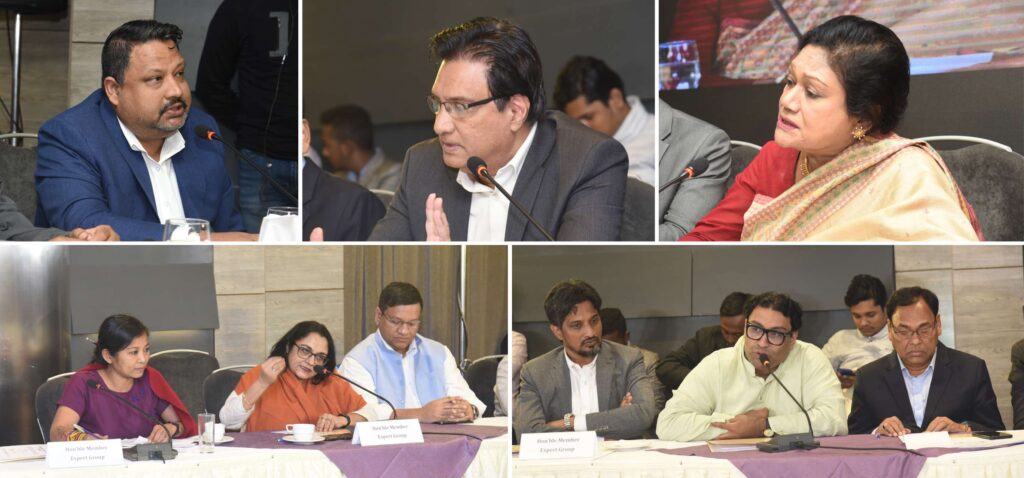
In the open floor discussion, the following experts expressed their views.
Mr Zakir Hossain, Chief Executive, Nagorik Uddyog said often barriers are created by the majority group. For instance, hatred and hate speech are taught in the Madrasas.
Dr Shahnaz Huda, Professor, Department of Law, University of Dhaka commented there is politicisation and corruption in every service-oriented organisation. There is also discrimination in every sector.
Dr Mirza M Hassan, Senior Research Fellow, BRAC Institute of Governance & Development (BIGD) stressed that there is a disbelief between government and citizens. Also, the state has been handed over to an affluent class of people.
Ms Rani Yan Yan, Adviser, Chakma Circle and Indigenous Human Rights Defender expressed her grief that political parties exploit the religious sentiments of the majority to stay in power.
Mr Amiya Prapan Chakra Borty (Arka), Chief Executive Officer, Dhrubotara Youth Development Foundation (DYDF) said people have turned silent, there is no freedom of speech and this is the scenario of the civil society at present.
Mr Nirmal Rozario, President, Bangladesh Christian Association-BCA commented representation of every community at the decision-making level and policy-making level is a must. Without the participation of all communities, society cannot be inclusive.
Ms Maleka Banu, General Secretary, Bangladesh Mahila Parishad stated that women-issues are not represented in the political manifesto.
Mr Kazi Faisal Bin Seraj, Country Representative, The Asia Foundation said the outreach has to be increased and a competitive nature might bring more success.
Advocate Salma Ali, President, Bangladesh National Woman Lawyers’ Association (BNWLA) suggested working together on these issue-based recommendations in the future to bring changes. She encouraged putting pressure on the Government to implement these recommendations.
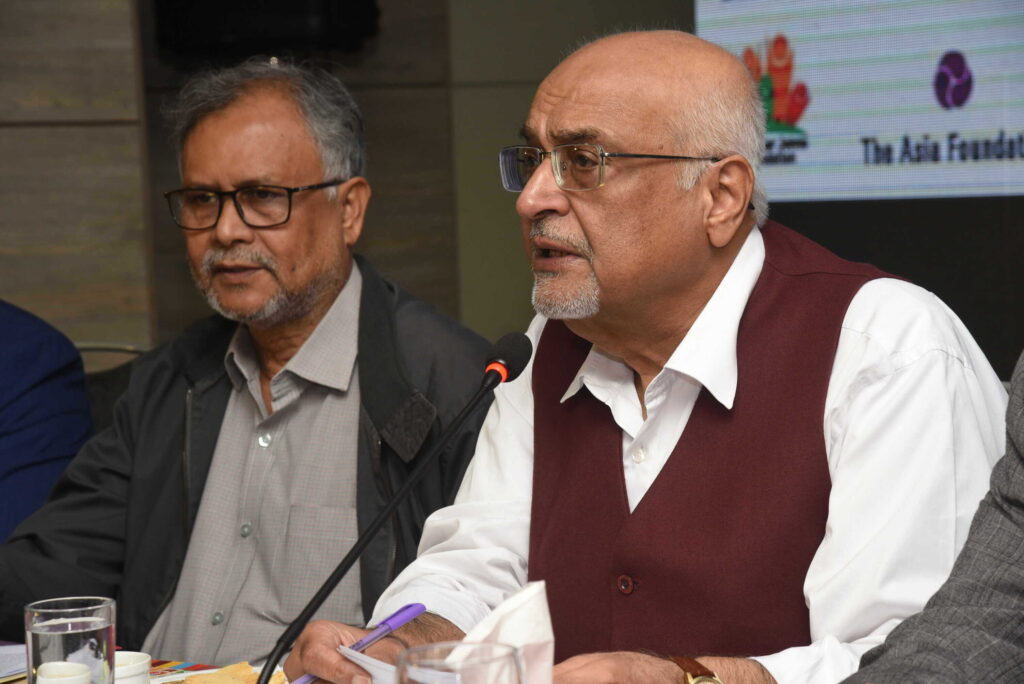 Dr Bhattacharya summarised the whole discussion and queries of the media. He said when there is no democratic pluralism, and no room for accountability, inequality grows. He mentioned about the ‘affidavit’ (Holofnama). The civil society demanded the mandatory submission of affidavit (Holofnama) and the RPO in 2007 was amended by the Election Commission. The Election Commission first introduced it in the 2008 election.
Dr Bhattacharya summarised the whole discussion and queries of the media. He said when there is no democratic pluralism, and no room for accountability, inequality grows. He mentioned about the ‘affidavit’ (Holofnama). The civil society demanded the mandatory submission of affidavit (Holofnama) and the RPO in 2007 was amended by the Election Commission. The Election Commission first introduced it in the 2008 election.
Today, civil society proudly says that the information people receive is the result of that collective movement of media and civil society. This must be protected.
Continuing the election issue, he added the wealth of those elected, increased exponentially with every election. Electoral participation has a positive relationship with a growth rate of property. Because to get access to state resources, this is the best way. The biggest evil of non-pluralism is non-competitive elections. Lastly, he termed this coming election as ‘special electoral activity’.
Dr Iftekharuzzaman, Core Group Member, Citizen’s Platform and Executive Director, Transparency International Bangladesh (TIB) presided over the briefing. In his concluding remarks, he expressed his gratitude to the experts, team members and Citizen’s Platform for the initiative and placing recommendations from the perspectives of the left behind communities. The recommendations are significant and effective for all, he added. Regarding election issues, he said that the election will take place, but it will not be participatory, only a political party will come into power and take over the responsibility. Undemocratic forces will be manifested through such circumstance.
The briefing concluded with thanks to the journalists and guests in attendance.
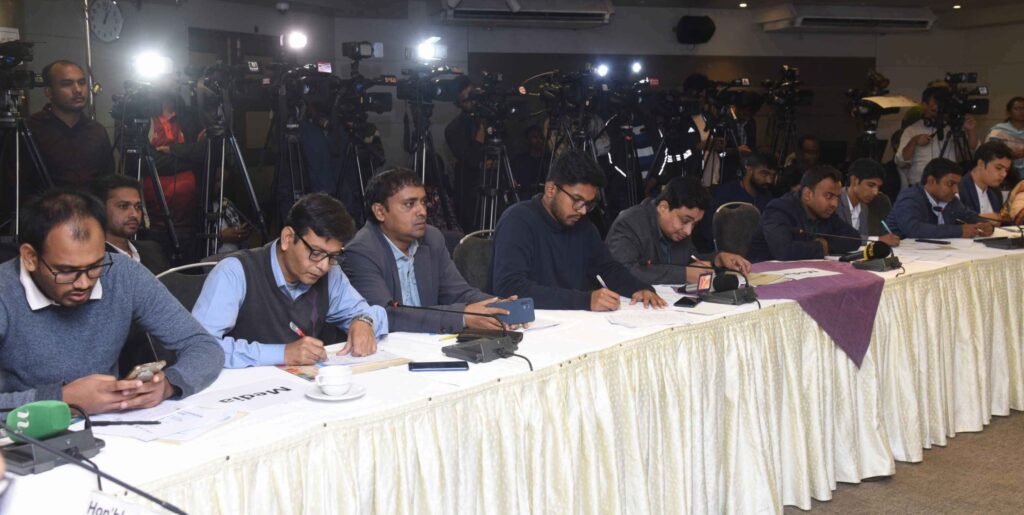


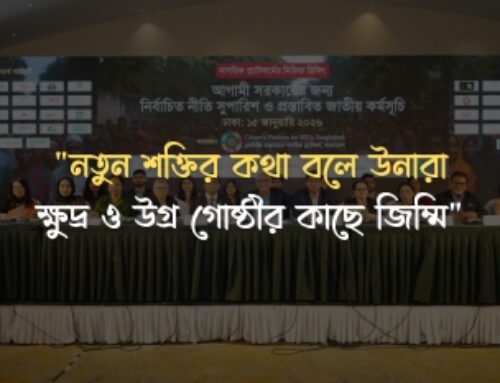
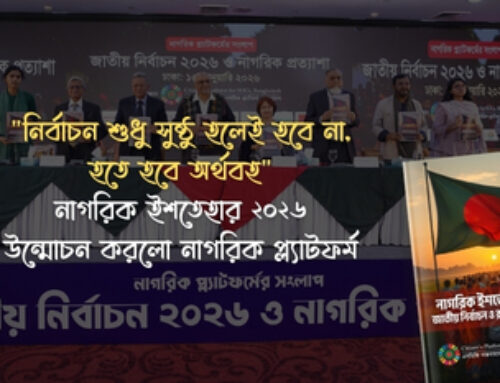

Leave A Comment